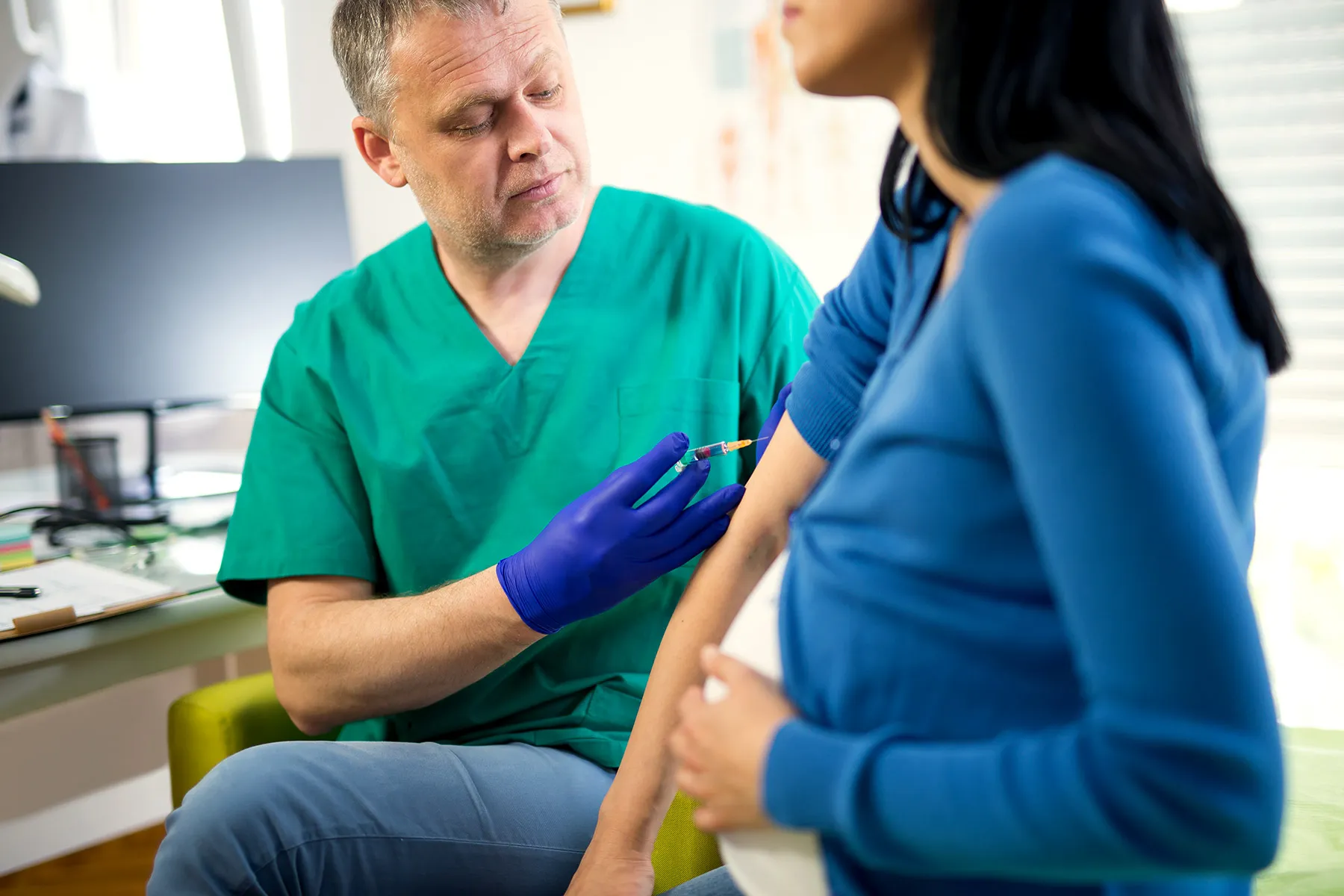
Oct. 5, 2023 – As we forge ahead into fall and winter, the threat of a “tripledemic” – when cases of COVID-19, flu, and RSV surge at the same time – looms over our heads.
Leading experts from the CDC on Wednesday met and addressed the three viruses that we’re faced with and how best to protect ourselves and others.
In the meeting, CDC Director Mandy Cohen, MD, MPH, said that clear, simple messaging is of the utmost importance right now: The most effective way to protect yourself from the worst of this season’s viruses is to get vaccinated. Everyone above 6 months old should get their flu shot and updated COVID vaccine; pregnant women and adults over 60 should get vaccinated against RSV. For all of these viruses, the month of October is the best time to get your shots to prevent infection down the line.
“Coadministration of this vaccine along with influenza and COVID vaccines is completely acceptable,” said Demetre Daskalakis, MD, MPH, the acting director of the National Center for Immunization and Respiratory Diseases (NCIRD). “And it’s important to remember that there’s a good amount of overlap between the conditions that may increase risk for influenza and COVID and those that may increase risk for severe RSV disease as well.”
Going over the CDC’s updated recommendation list for all three vaccinations, Daskalakis said if you’ve already had a dose of the previous COVID vaccine, you should wait about 2 months before getting the updated one. If you’ve recently had COVID, the CDC guidelines say, you may consider waiting 3 months to get the new COVID shot.
In addition to the original vaccination series and a dose of the updated shot, Daskalakis said, those who are immunocompromised may receive more doses now depending on what their health care provider advises.
When it comes to RSV in infants, Daskalakis pointed out that all babies qualify for nirsevimab, the monoclonal antibody treatment to protect against RSV. Another way to target newborns and infants is by getting pregnant people vaccinated 32-36 weeks into their pregnancy.
With all of these viruses, experts agreed that speed is the key for treatment. Getting tested as soon as you can, getting antivirals like Paxlovid for COVID-19 or those that target influenza, and masking if you’ve been exposed to a virus are all vital strategies to protect others from infection.
Since the rollout of the updated COVID vaccine, there have been many reports of people struggling to get an appointment or having their appointments canceled at the last minute. Daskalakis and Nirav Shah, MD, JD, principal deputy director of the CDC, addressed these issues.
“Public health distribution of vaccine is a lot different than commercial distribution of vaccine,” said Daskalakis, who said it took a year of planning to prepare for the switch. Despite reports, he said that every day the CDC is seeing an increase of vaccine supply come in for all providers, whether that be pharmacies or doctors’ offices.
“Please don’t give up on the vaccine, please know that the vaccine is available,” said Shah. “And please check back in with your provider, with your pharmacist because it’s likely that if they didn’t have the vaccine 2 weeks ago, they will have it now.”
